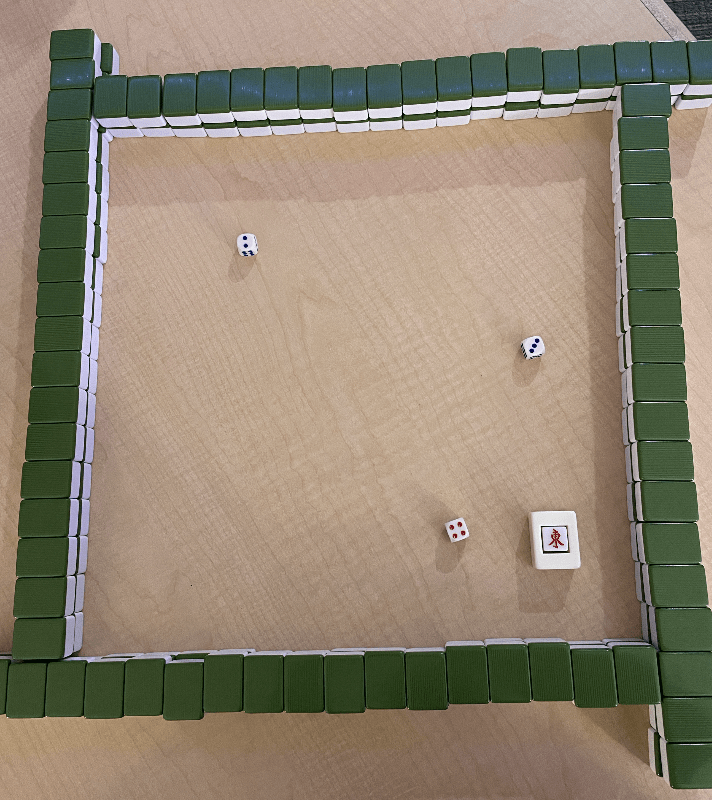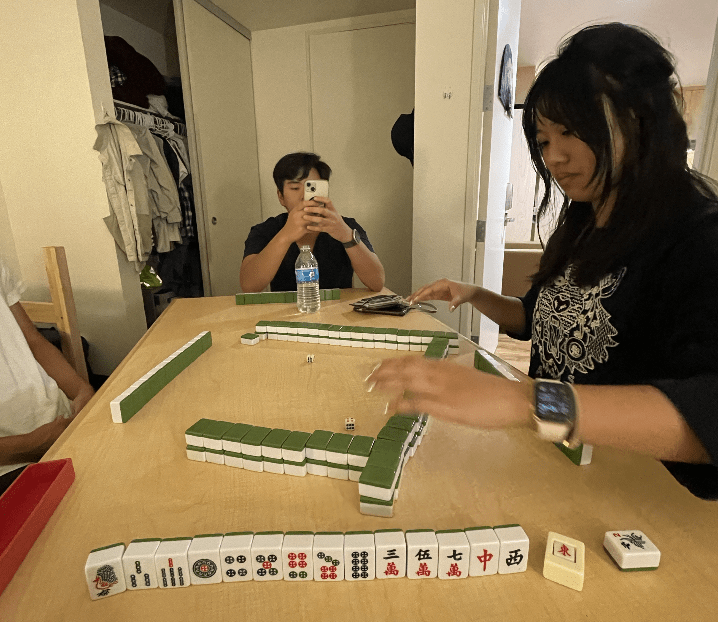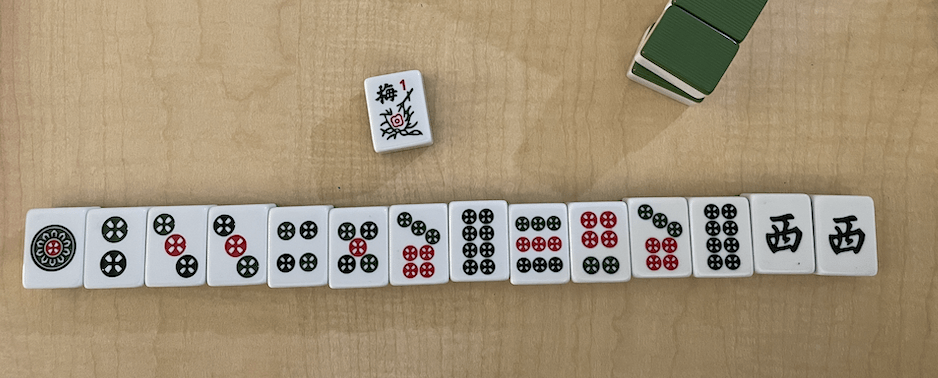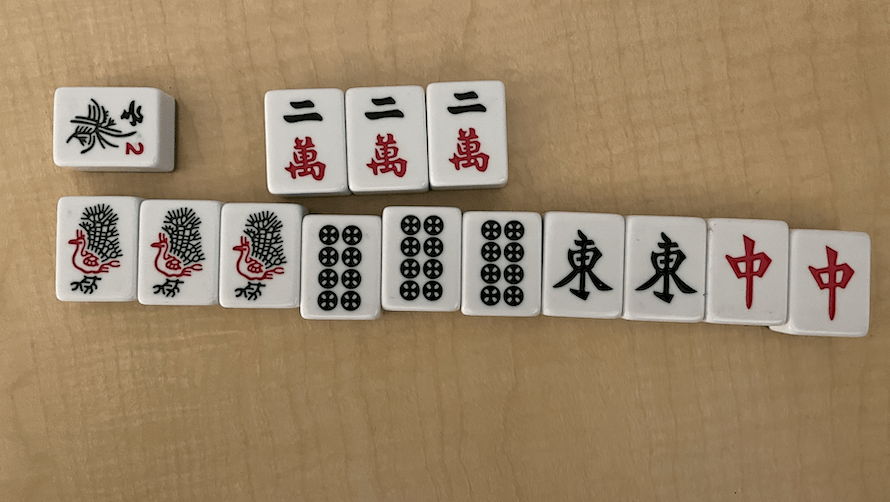Mahjong is a very old, traditional Chinese 4-player tile-based game that involves skill, strategy, and a bit of luck. The objective is to create sets of tiles and clear the board by matching and removing specific combinations. There are several win states, some of which earn more points. The point system helps players keep track of how much money they’ve earned. Additionally, although there are 4 players, there is only 1 winner and loser—the winner is the first player to reach any win state and the loser is the player who “feeds” (hands) over the winning tile.

In order to win a game of Mahjong and earn money, the player not only needs to be smart, but lucky, as well. There are a few “lucky” elements that can make or break success in any given round: the hand you are dealt, drawing flowers, who you sit next to, and tiles drawn from the board. 500 words is not enough to get into all the intricacies of the game and why each component matters, so I’ll just stick to your hand, and the flowers.


The hand you are dealt matters because for the two basic win states, you are required to either have all 14 tiles be the same suit, or have each be either a pair a triple (with the exception of special characters), as you can see in the winning hand below. This hand also has one flower tile with the #1 on it—I drew this later on in the game. This was lucky, since I was in “position 1 – West” and this is the only numbered flower that gave me points. My starting hand was also lucky (above) because 6 out of 14 of starting hand were already biscuits, so it required “luck” to win since I required less chances to draw biscuit tiles.

Mahjong games take a long time, and that factors into the likelihood for addiction, because the more time people spend on the game, the more invested they become—so when they lose a round because they were only missing one tile (as shown below), they are more incentivized to play again because they think they can recreate that same strategy/luck.
 Mahjong cannot be just distilled down to a game of pure skill or pure luck. It does help to be strategic, but people are proud—when they lose, they had “bad luck,” but when they win, they were “strategic.” There is never any mention of luck in a winning hand, or mistakes in a losing hand, despite the fact that the game is constantly bouncing between the two concepts.
Mahjong cannot be just distilled down to a game of pure skill or pure luck. It does help to be strategic, but people are proud—when they lose, they had “bad luck,” but when they win, they were “strategic.” There is never any mention of luck in a winning hand, or mistakes in a losing hand, despite the fact that the game is constantly bouncing between the two concepts.
I would still rank Mahjong above other games of chance because it does not merely produce the aesthetic of submission and fellowship, like other card games of chance, but also the aesthetic of challenge—players get to exercise and show off their critical and strategic thinking skills. Whether or not their win is justifiably because of those skills; well, at the very least, there is an argument for it.


